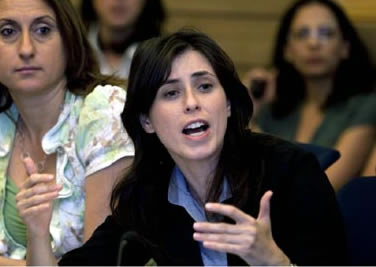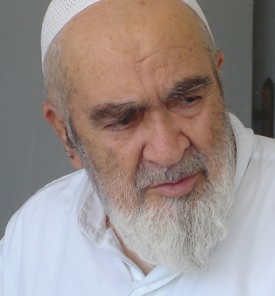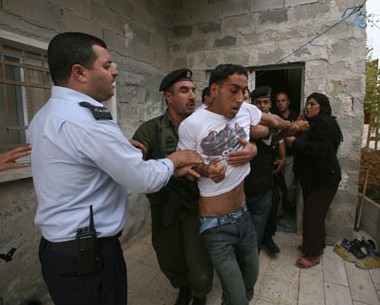“If you’re going to ask me questions about my regrets, plan to spend the next month or so in my house!” Those were the words with which Ayatollah Hussein Ali Montazeri greeted me when I interviewed him at his home in the holy city of Qum four years ago. He was then 83 years old and could look back on a life in which he’d served as a founding father of the Islamic Republic only to become its most vocal critic. More recently, especially in the last seven months of protest and crackdowns following the disputed June 12 reelection of President Mahmoud Ahmadinejad, Montazeri has emerged as the authoritative voice of religious opposition to a supposedly religious regime. He has been lionized as an idealist speaking truth to those in a power structure riddled with cynical and corrupt ideologues. For many Iranians, Montazeri became more than a hero, more than an ayatollah; he was truly, as Shiites say, a source of emulation.
On Sunday, Iranian state news agencies announced that Montazeri had died at 87 of natural causes, and at first they didn’t even want to call him an ayatollah. The paranoid regime in Tehran did its best to discourage people from attending his funeral on Monday. All major newspapers received a letter from Iran’s Ministry of Culture and Islamic Guidance about how to play down Montazeri’s death. The ministry even sent some agents to the printers to make sure that newspapers listened to its orders, according to one newspaper editor. They ordered the telecommunications company to slow the speed of Internet connections, and they shut down mobile phones in Qum for several hours, eyewitnesses said.
Iran’s Ministry of Intelligence warned political activists not to attend the burial service next to Qum’s Masuma shrine. The police and the Revolutionary Guards arrested others before they reached the city. Two Iranian journalists reported that security forces with riot shields and truncheons ringed Montazeri’s house, and the streets were full of police in uniform and in plain clothes carrying walkie-talkies and stun guns. The Basij militia connected to Iran’s increasingly powerful Revolutionary Guards corps attacked buses full of mourners, and the regime’s partisans and thugs filled the main mosque in Qum rather than let a memorial service be held there. But according to eyewitnesses, hundreds of thousands of people came to the city anyway. [continued…]
Cleric’s death, torture case jolt Iran
Iran’s opposition seized upon the death of one of the Islamic republic’s founding fathers — a revered ayatollah who was also a fierce critic of the nation’s leadership — to take to the streets in mourning.
Tens of thousands of Iranian mourners–many chanting protest slogans–joined the funeral procession Monday for Grand Ayatollah Hossein Ali Montazeri, who had described government crackdowns as the work of power-hungry despots.
Iranian authorities have barred foreign media from covering the processions in the holy city of Qom for Ayatollah Montazeri, who died Sunday at age 87. But witnesses said many mourners shouted protest cries including “Death to the Dictator” in displays of anger against Iran’s ruling establishment.
There were no immediate reports of serious clashes from the witnesses, who spoke on condition of anonymity because of fears of arrest by Iranian authorities. Some opposition Web sites noted scuffles and violence, but the reports couldn’t immediately be confirmed.
On Monday, access to the Internet in Iran was slow, and cellular telephone service was unreliable. The government has periodically restricted communications in an attempt to prevent protesters from organizing.
The death of Ayatollah Montazeri, who passed away in his sleep, was only one of two surprises to shake Iran over the weekend.
Hours earlier, on Saturday, military prosecutors alleged that prison guards tortured to death at least three student protesters in July, contradicting months of denials by top leaders. The reversal is one of the biggest blows to Tehran’s credibility since government protests first erupted six months ago.
Either development, by itself, would provide a rallying point for the opposition, which claims last summer’s presidential election was a fraud and is demanding a political overhaul. Together, they represent the widening array of challenges facing the Iranian regime. [continued…]
The remarkable life of Iran’s bravest cleric
Born in 1922 to a poor but pious family, he studied not only with Ayatollah Khomeini but with Grand Ayatollah Borujerdi, easily the most esteemed Shiite leader of his time. In Shiite clerical hierarchy, the stature of your teachers is a significant measure of your own stature. Montazeri’s pedagogical pedigree was singular for it combined the unmatched erudition of Boroujerdi with the political bravura of Khomeini. Moreover, Montazeri had been relentless in fighting on the side of his mentor throughout the ’60s and ’70s when Khomeini lived in exile. After the victory of the revolution, he had emerged clearly as the second most powerful man in Iran. The 1986 decision to name him the successor to Khomeini codified in law what was already evident in practice.
Tensions between Khomeini and Montazeri began when someone on Montazeri’s staff leaked the story of secret deals between Iran and the United States–what turned out to be the Iran-Contra Affair. Khomeini executed the staffer, despite protestations from Montazeri. A few months later, as the nation learned of Khomeini’s ill health, Montazeri learned of mass executions in prisons on the order of Khomeini. Prisoners serving time on earlier charges were to be retried–in procedures often lasting no more than a few minutes–and executed if found to be still opposed to the regime. Instead of keeping a pragmatic silence and awaiting Khomeini’s death, as many of his advisors recommended, Montazeri wrote a harshly worded letter to Khomeini condemning the orders, saying that this is not the kind of revolution they had fought for together.
This time, the price for protesting murder and moral perfidy was the direct wrath of Khomeini. Montazeri was not only stripped of all his power, but ridiculed in the press by many, including Khomeini’s son, as an imbecile–a country bumpkin at best, unwittingly used and abused by “enemies of Islam.” The media began a vicious campaign of character assassination against Montazeri, the man Khomeini had not long before called “the essence of my life” and a “pillar of Islam.” [continued…]
Iran-Iraq standoff over oil field ends
Iraq said Sunday that Iranian soldiers who had been occupying part of a disputed Iraqi oil field had withdrawn, ending a three-day standoff that had strained relations between the countries.
But Labeed Abawi, Iraq’s deputy foreign affairs minister, said some Iranian troops remained in Iraq late Sunday. “They withdrew from the field, but they are not completely out of Iraqi territory,” he said.
Mr. Abawi said representatives of the two countries planned to meet soon to try to agree on the precise border in the vicinity of the Fakka field in Maysan Province in southeastern Iraq.
Iran’s state news media said Sunday that the Iranian troops had returned to their border post, but that the soldiers had never crossed into Iraq.
Iraq claims that it dug oil wells on the Fakka field during the 1970s before the Iran-Iraq war. But Iran says the area near the well that its soldiers had occupied — known as Well No. 4 — is on the Iranian side of the border.
At least four other oil fields in Iraq are within several hundred yards of the Iranian border or straddle the line.
Border disputes between the countries, which set off the 1980-88 Iran-Iraq war, have become more common in recent months as Iraq has moved to sell development rights to fields near the Iranian border, including Fakka. [continued…]

 nesset Member Tzipi Hotovely, one of the leading dissenting voices in the Likud faction opposing the policy adopted by Prime Minister Benjamin Netanyahu, said Sunday that the territories should be annexed to Israel.
nesset Member Tzipi Hotovely, one of the leading dissenting voices in the Likud faction opposing the policy adopted by Prime Minister Benjamin Netanyahu, said Sunday that the territories should be annexed to Israel. ran’s top dissident cleric, Grand Ayatollah Hossein Ali Montazeri, 87 years old, died in his sleep on Saturday night, his family said, drawing supporters to the holy city of Qom on Sunday to pay their respects.
ran’s top dissident cleric, Grand Ayatollah Hossein Ali Montazeri, 87 years old, died in his sleep on Saturday night, his family said, drawing supporters to the holy city of Qom on Sunday to pay their respects. alestinian security agents who have been detaining and allegedly torturing supporters of the Islamist organisation Hamas in the West Bank have been working closely with the CIA, the Guardian has learned.
alestinian security agents who have been detaining and allegedly torturing supporters of the Islamist organisation Hamas in the West Bank have been working closely with the CIA, the Guardian has learned.